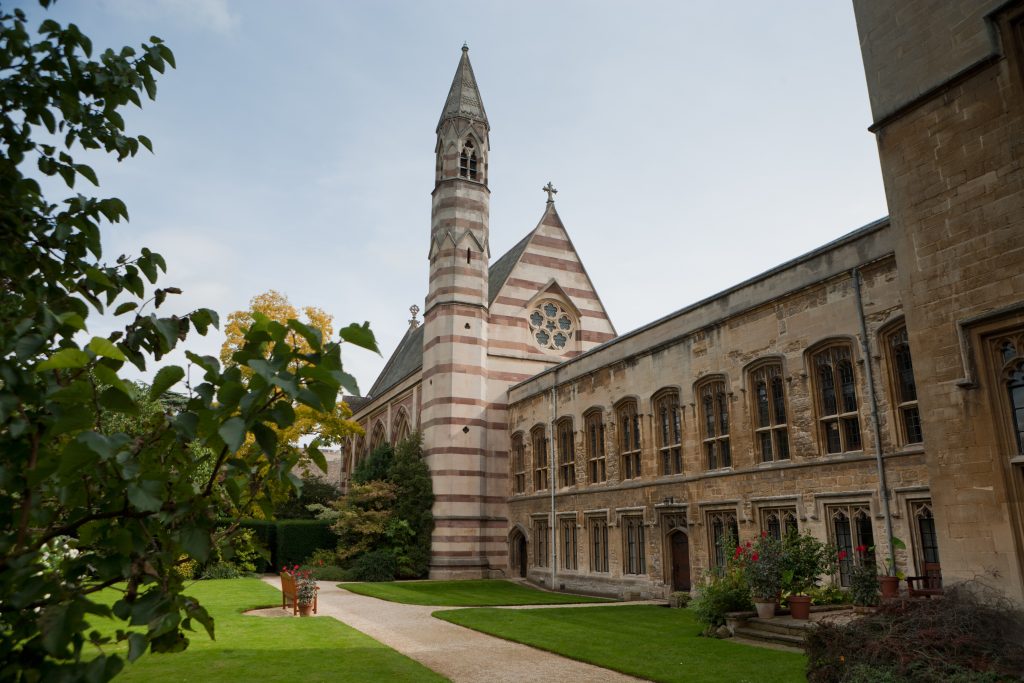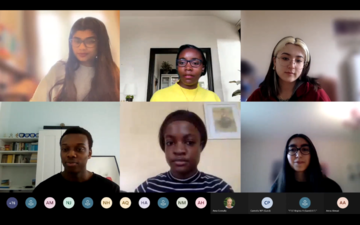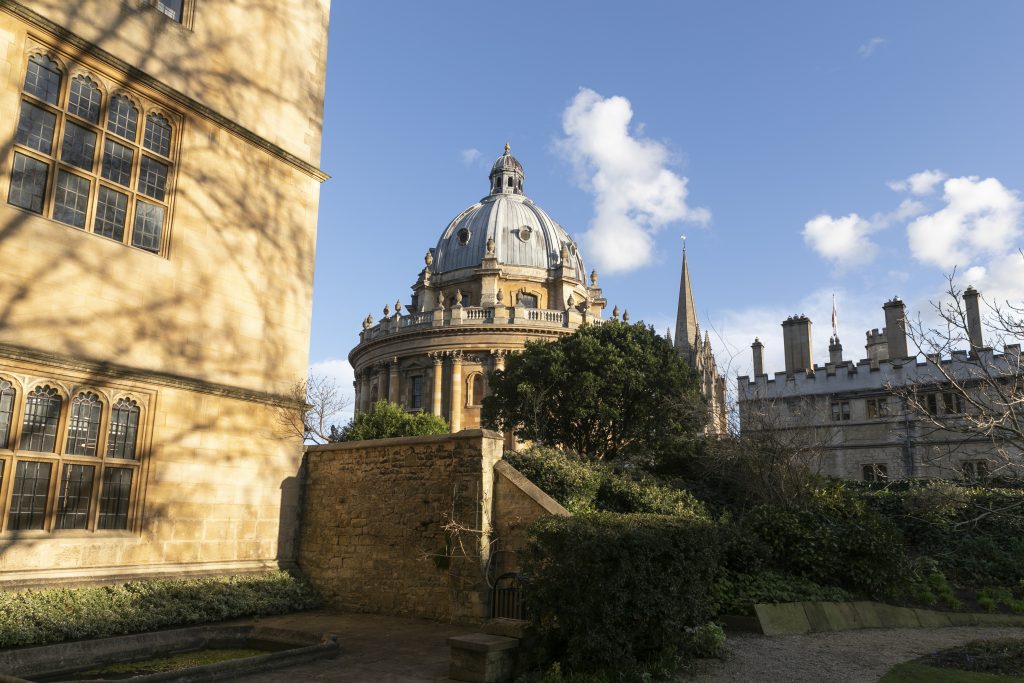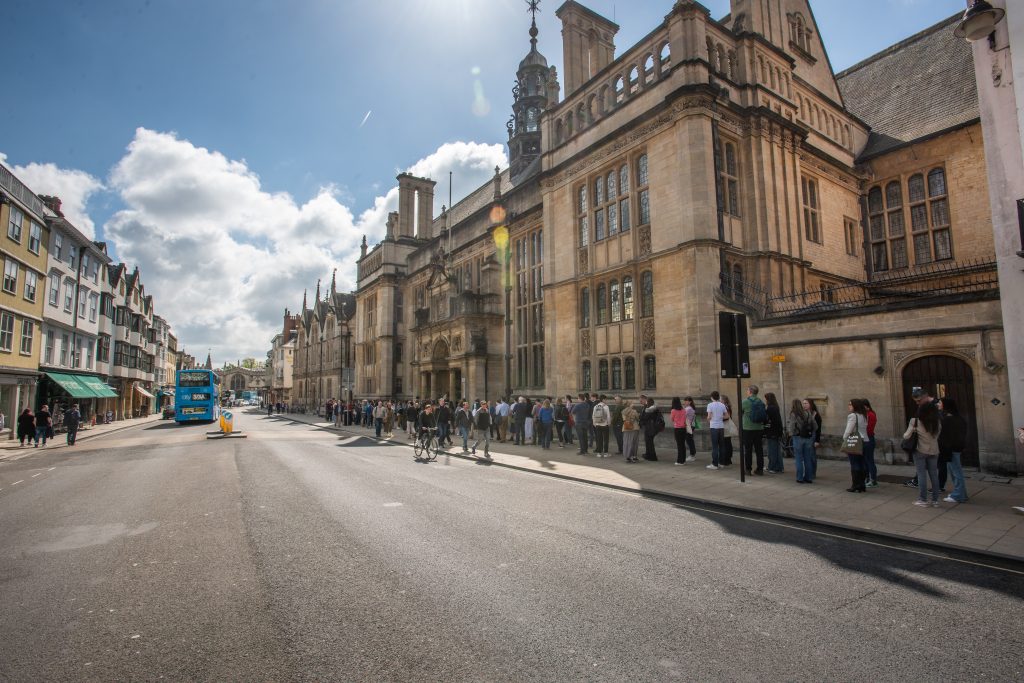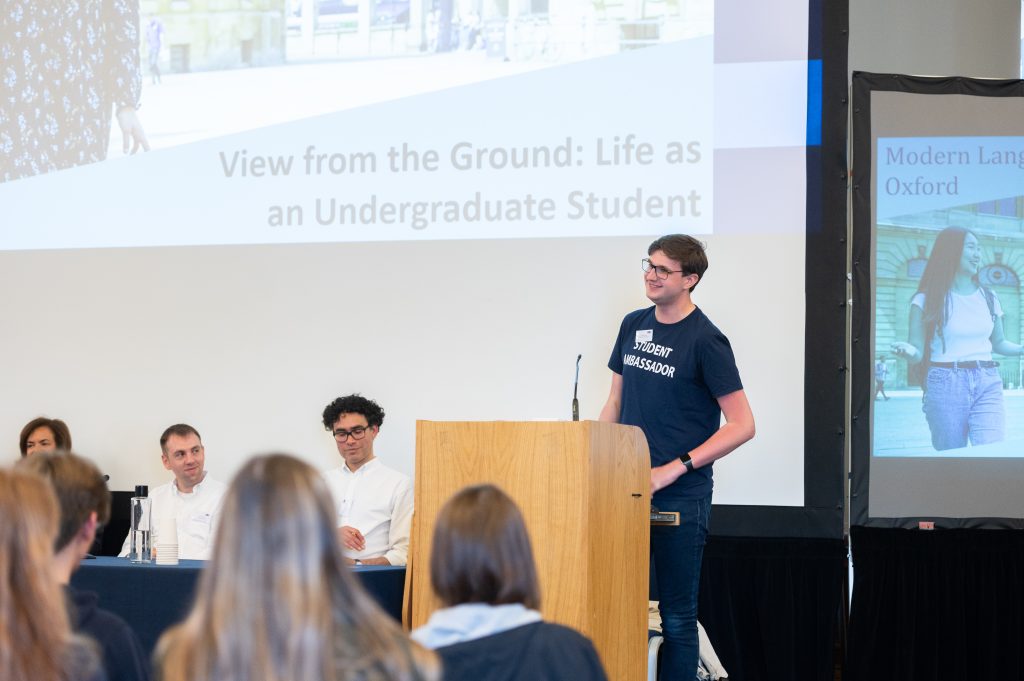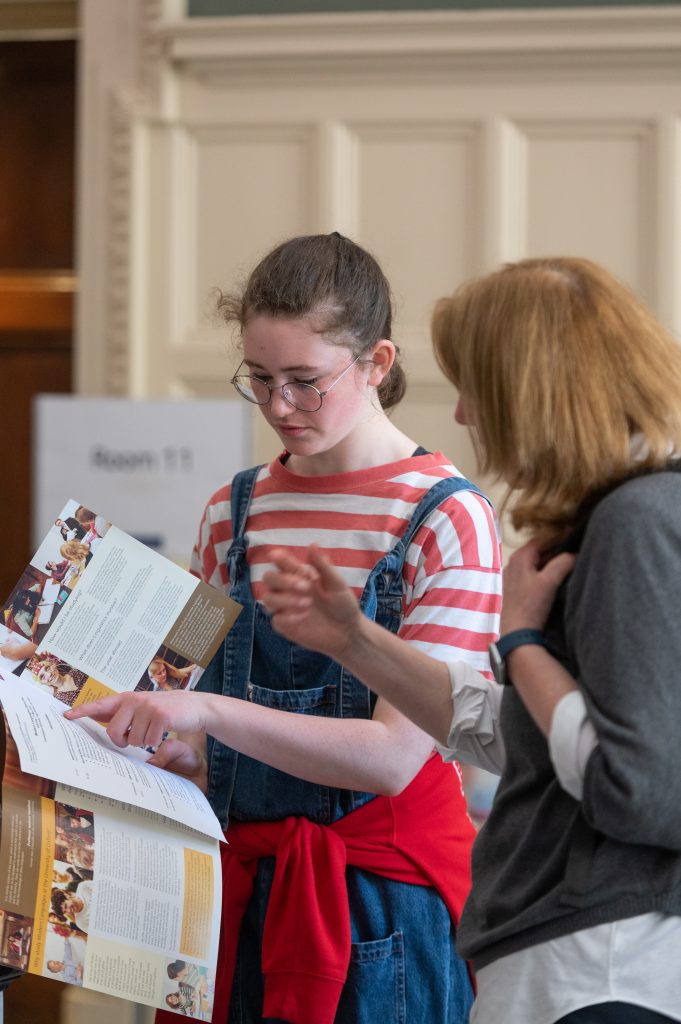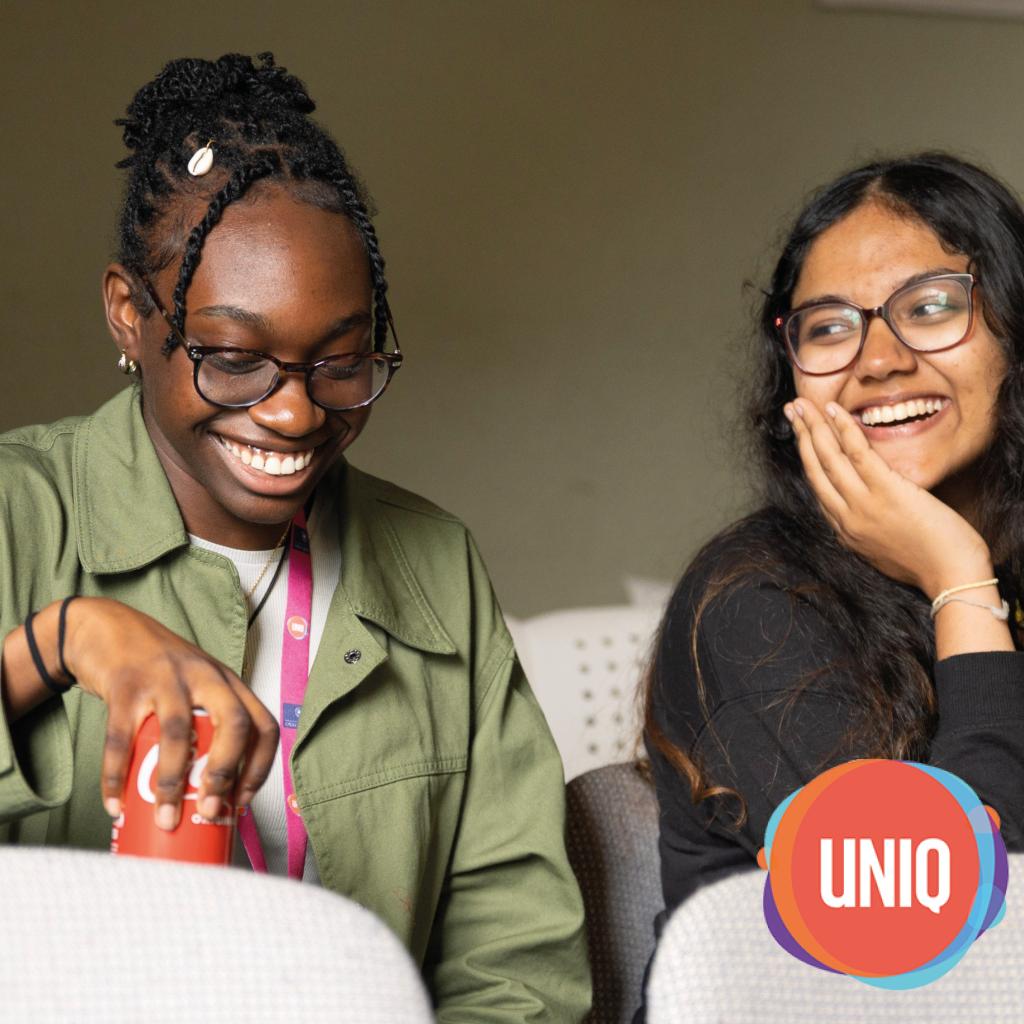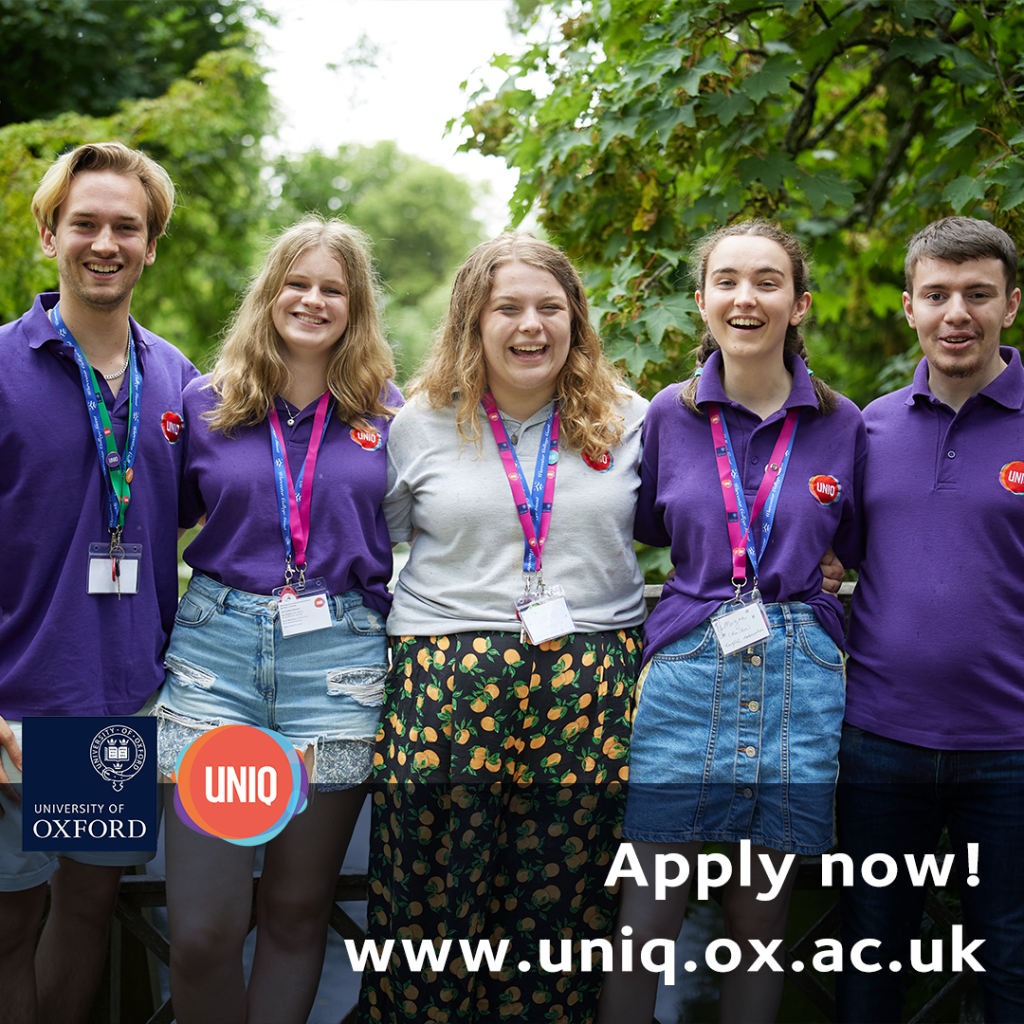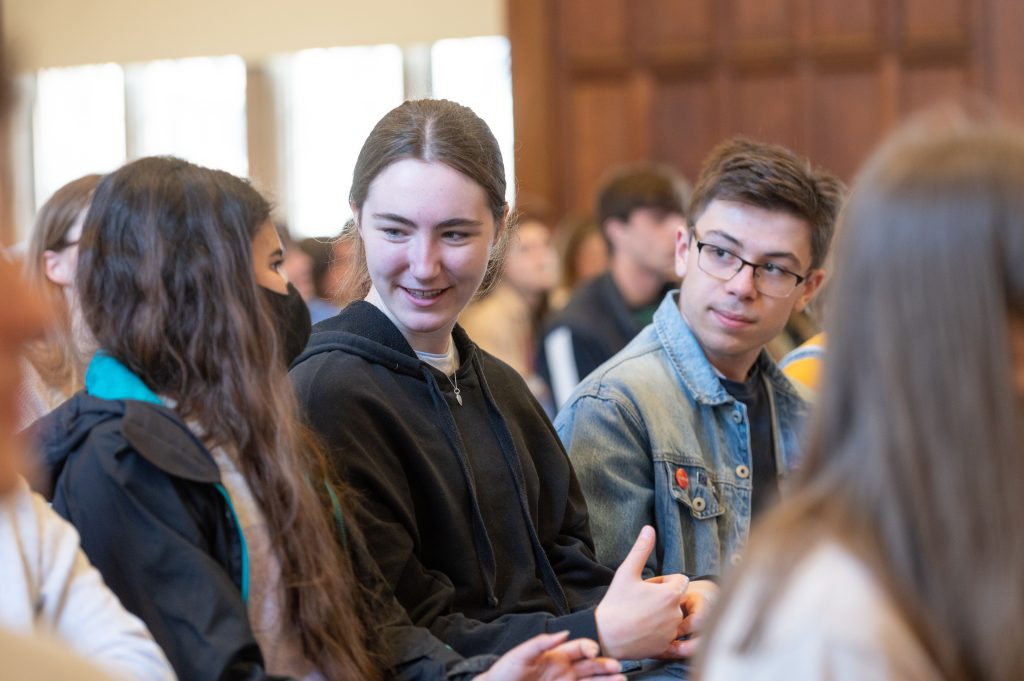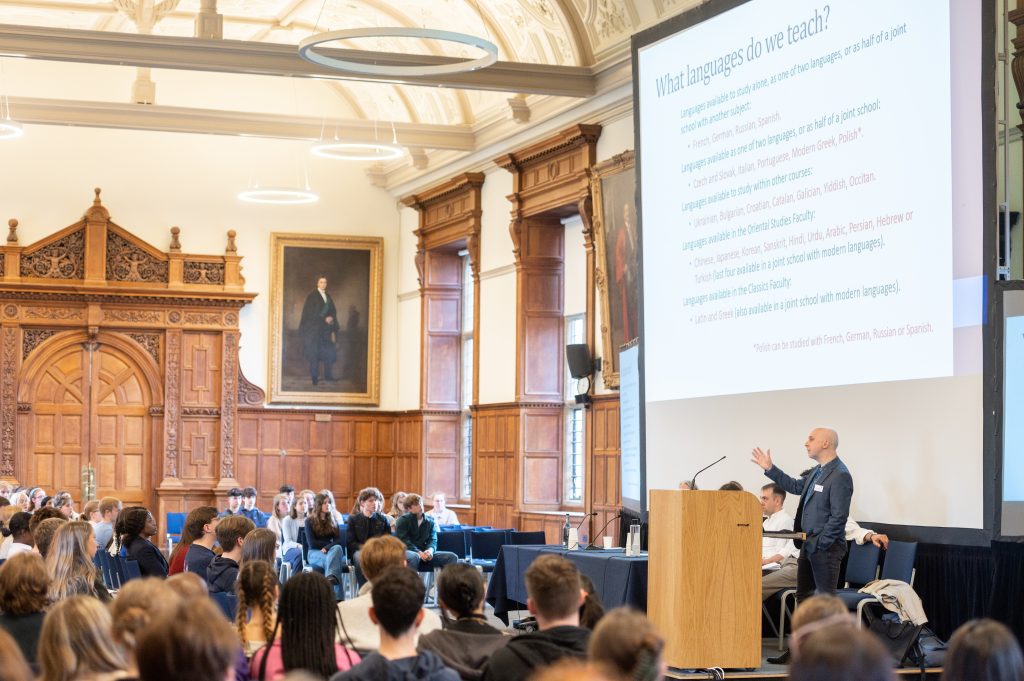Following our recent update about the new arrangements for Oxford’s 2024 tests, we now have more details on the Modern Languages Admissions Test (MLAT) to share with prospective students and their teachers and guardians.
This year’s tests are being delivered by Pearson VUE and the MLAT will take place on 22 October 2024. We’re working on a principle of maximum continuity with previous years, but there are some changes in what the test contains and how you take it.
WHAT IS THE MLAT AND WHICH PARTS OF IT DO I NEED TO DO?
The Modern Languages Admissions Test is used as part of the admissions process for all courses involving modern languages, i.e.:
The Modern Languages Admissions Test is a computer-based test which consists of 10 sections. Which sections you take depends on the course you are applying for.
There are eight individual sections for each of the following languages:
- Czech, French, German, Italian, Modern Greek, Portuguese, Russian, Spanish
The other sections are:
- the Language Aptitude Test (LAT), for those applying for Russian on its own, courses with Beginners’ Russian, or courses with Polish. NB. This is a change from previous years. Other beginners’ languages besides Russian and Polish NO LONGER ask you to take the Language Aptitude Test.
- the Philosophy Admissions Test, for those applying for Philosophy and Modern Languages.
On the modern languages admissions pages you’ll find a table telling you exactly which sections of the test you need to take for the course you’re applying for.
- Some courses require you to take two sections of the test, for instance if you’re applying for a degree in two languages that you’re already studying in the sixth form, such as French and Spanish. You’ll sit both tests over the course of an hour, one after the other.
- Some courses require you to sit only one section, for instance if you’re applying to study a language on its own (French single honours), a language with another subject (French and History), or a language with a beginners’ language (French and Beginners’ Italian). In all these cases you’d sit the French test only. (NB: you may need to sit an admissions test for degrees with another subject such as the History Admissions Test for degrees combining a modern language and History).
- Some courses involving a beginners’ language and another subject, like English and Beginners’ Portuguese, don’t require you to sit the MLAT at all.
WHAT DOES THE TEST LOOK LIKE?
Each language test is 30 minutes long. (NB: the Philosophy Admissions Test is 60 mins).
The first exercise consists of 20 multiple choice questions. In each question, you need to pick the correct word or phrase out of four options to fill a gap in a target-language sentence. They’re the same kinds of gap-fill questions as in previous versions of the MLAT that you’ll find archived on our pages. The only difference is that you’re now choosing the answer from multiple choice rather than writing it in the gap yourself.
The second exercise consists of 10 target-language sentences which you are asked to translate into English. Again, this exercise is based on the translation-into-English exercise from previous MLATs, and the sentences will be of a similar type and complexity to those you’ll find on archived MLATs.
There is no longer a translate-into-the-target-language exercise on the language tests. All your answers will either be multiple-choice or written in English.
The Language Aptitude Test (now only for Russian Single Honours and courses with Beginners’ Russian or Polish) has the same format as on the archived tests: decoding, translating and creating sentences in a made-up language from examples of sentences and their English translation. The LAT does ask candidates to write answers in the made-up language as well as in English.
All applicants taking this test are invited to practise by taking a sample test online in advance of their test day. While the content and structure of this test has changed slightly, all existing online resources and past papers are still valuable preparation for you and we strongly recommend you exploring these.
HOW DO I SIGN UP FOR AND TAKE THE TEST?
All tests will be online and delivered via Pearson VUE’s established network of test centres, rather than in schools as was previously the case. There will be no charge for candidates to register for Oxford’s own tests this year. This year’s MLAT, as mentioned will take place on 22 October; tests for other subjects at Oxford are all taking place between 21-31 October.
Candidates for all Oxford tests will be able to register with Pearson VUE between 15 August and 4 October. When registering, candidates will be able to request the access arrangements which are normally available to them for public examinations taken in their school or college. Detailed candidate guidance on test preparation will be available shortly via ox.ac.uk/tests and there will be a sample test provided, which will also allow you to explore the test platform. Answers and mark schemes will be supplied for you to check your performance.
Huge thanks go to Prof. Simon Kemp for putting these helpful notes together.
